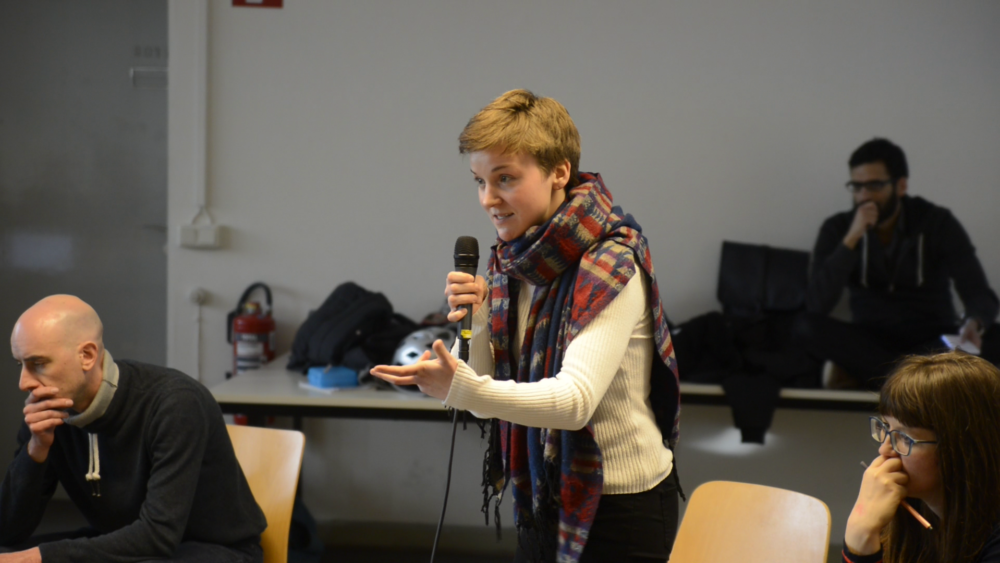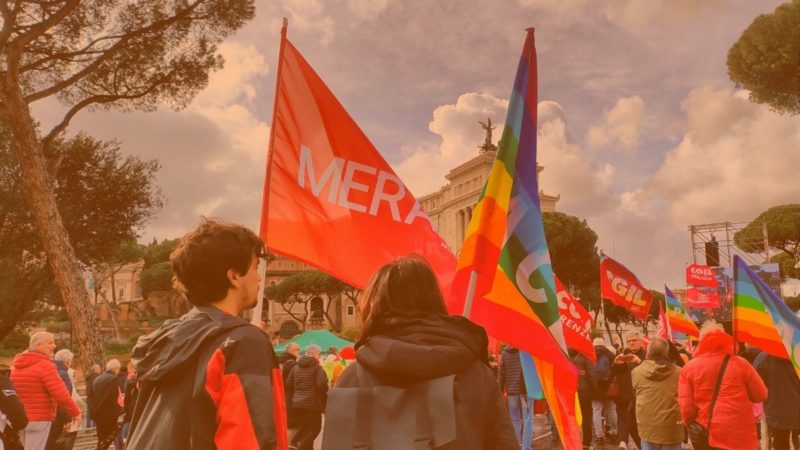In recent weeks, several DiEMers have asked me: “Elisa, why are there so few women in DiEM25?”
I tend to start stammering. I am a woman, so I should know… Think Elisa!
But neither is there a singular explanation to this question, nor do I have the interpretational sovereignty to tell. Having been an active member of DiEM25 for the last year and a half, I have come up with a bunch of explanations through the observation of our exterior and interior communication, our prioritization of topics and agenda, our language, our actions or lack of actions, meritocracy and “society”, but most above all through my personal experience – one could say through my embodied experience. My explanations stem from this experience and my background in social anthropology. They are, therefore, subjective.
DiEM25 was born in Berlin at the Volksbühne two years ago, and we returned there last May. At that event, I was involved in a workshop on “Gender” for which we had conducted an internal survey trying to find out about the gender balance in our DSC structures. My casual observation was indeed confirmed by the numbers: 80 percent male, and just 20 percent female.
Of course, we — my comrade Roberta and I —were keenly aware of the limits of such an approach, which could reproduce and reinforce . We both strongly believe that diversity is immensely valuable, but that it is not easily captured in numbers and figures.
At the same time, these remain powerful categories, organizing our economy, our politics, and our culture. As a movement, we must be attentive to these metrics and the ways they inform our work.
Since that last meeting at the Volksbühne, something has changed. The lack of women in DiEM25 has become very obvious. We openly discuss it, and strategies for redressing this imbalance have become part of our agenda – and perhaps more importantly, a part of our collective awareness. Last month, for the second anniversary celebrations in Berlin we experimented with facilitators in every workshop to ensure the possibility of equal participation for all. This is a start, but concern for diversity and gender balance must suffuse our political practice and our policy.
More specifically, we need a feminist perspective on care in the European New Deal, just as we need sensibility in our culture of discussion. In our work on labour, we need to consider the extreme inequalities associated with gender, just as we need to create the space in our discussions for the feminist voice to speak. We need to establish party wings while ensuring that the movement takes the lead. We need these dialectics in our struggle for more democracy in Europe (and beyond). And we must centre the women’s struggle along the way.
Part of that process will involve us seeking out partners beyond the movement. In February, DSC Berlin provided a platform that gave me the chance to moderate a talk with Meral Çiçek, a great speaker and true intellectual from South Kurdistan. In the course of my personal journey at DiEM25, I have established an open dialogue with members of the Kurdish freedom movement, especially the Kurdish women’s movement. So when Meral came to speak, it was a very special moment. And I could tell, looking into our group, that my comrades felt the same.
We must cultivate this connection far and wide. Instead of intellectualizing the problem of diverse participation and action, we could send out invitations, and thereby turn around what David Graber calls the “lopsided structures of the imagination”. Lopsided structures of the imagination are created under the condition of structural inequality and refer to the phenomena that the oppressed always need to perform more interpretive labour as opposed to their oppressors. If you want to know why and how you are being oppressed, you need to imagine the logic of oppression. In turn, ruling classes usually don´t perform this interpretive labour – on the contrary.1
My latest experiences in and with DiEM25 have proven that the times they are a-changing. That gives me a lot of hope for our future. Or to let Meral speak: “the revolution is not a moment, it´s a process”.
Carpe DiEM!
[1] I don´t mean the actual beating-you-with-a-stick type of oppressor, rather a structural version.
Elisa is a member and volunteer of the DSC Munich.
Do you want to be informed of DiEM25's actions? Sign up here




